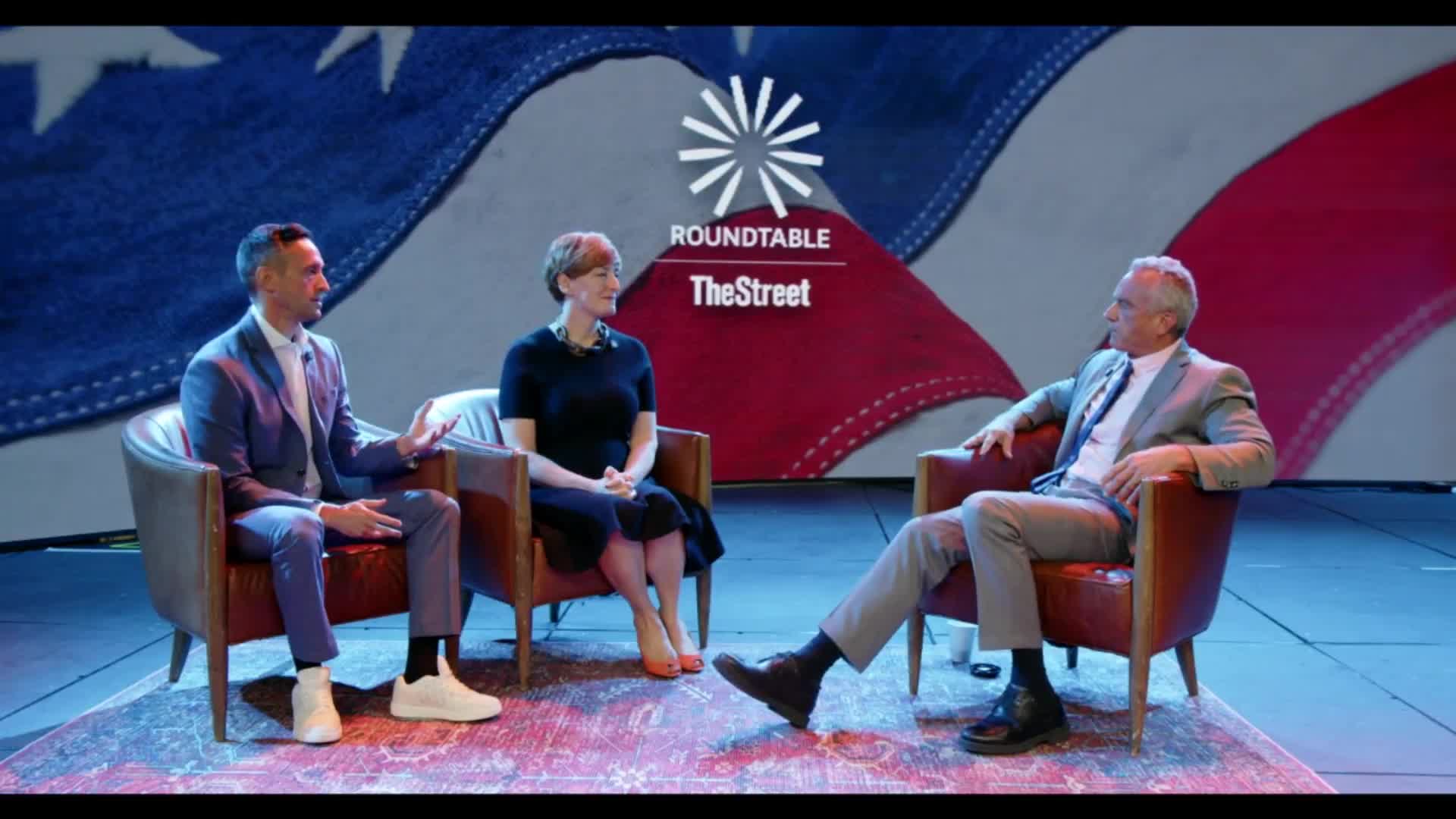Bitcoin as a cornerstone for democracy and personal freedom
July 24, 2024 | Robert F. Kennedy Jr., Presidential Candidates 2024

This article was created by AI summarizing key points discussed. AI makes mistakes, so for full details and context, please refer to the video of the full meeting. Please report any errors so we can fix them. Report an error »

In a recent government meeting, a significant discussion emerged regarding the potential integration of Bitcoin into the federal balance sheet. A prominent official expressed a commitment to not only add Bitcoin but also to explore a diversified approach by including a basket of hard currencies, such as gold and platinum. The proposal aims to issue treasury bills anchored to these hard assets, with a gradual increase in their backing over time.
The official emphasized the importance of Bitcoin as a decentralized currency, arguing that it embodies principles of personal sovereignty and freedom. This perspective was contrasted sharply with concerns surrounding Central Bank Digital Currencies (CBDCs), which were described as a potential threat to individual liberties. The official highlighted fears that CBDCs could lead to government overreach, enabling authorities to monitor and control personal spending through programmable currencies, akin to social credit systems observed in countries like China.
The discussion also touched on broader economic implications, with the official lamenting the current financial system's perceived unfairness and inflationary pressures. Drawing parallels between Bitcoin and the historical gold standard, the official argued that both serve as mechanisms to tether currency to intrinsic value, thereby preventing government overspending and fostering a fairer economic environment.
As the conversation unfolded, the official's personal investment in Bitcoin was revealed, underscoring a deep belief in its potential to uphold democratic values and individual rights. This meeting marks a pivotal moment in the ongoing dialogue about the future of currency in the United States, as officials weigh the benefits of embracing digital assets against the risks posed by emerging financial technologies.
The official emphasized the importance of Bitcoin as a decentralized currency, arguing that it embodies principles of personal sovereignty and freedom. This perspective was contrasted sharply with concerns surrounding Central Bank Digital Currencies (CBDCs), which were described as a potential threat to individual liberties. The official highlighted fears that CBDCs could lead to government overreach, enabling authorities to monitor and control personal spending through programmable currencies, akin to social credit systems observed in countries like China.
The discussion also touched on broader economic implications, with the official lamenting the current financial system's perceived unfairness and inflationary pressures. Drawing parallels between Bitcoin and the historical gold standard, the official argued that both serve as mechanisms to tether currency to intrinsic value, thereby preventing government overspending and fostering a fairer economic environment.
As the conversation unfolded, the official's personal investment in Bitcoin was revealed, underscoring a deep belief in its potential to uphold democratic values and individual rights. This meeting marks a pivotal moment in the ongoing dialogue about the future of currency in the United States, as officials weigh the benefits of embracing digital assets against the risks posed by emerging financial technologies.
View full meeting
This article is based on a recent meeting—watch the full video and explore the complete transcript for deeper insights into the discussion.
View full meeting